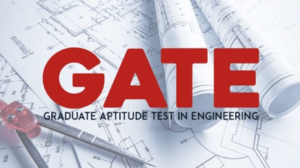The Role of Psychoeducational Assessments in Academic Success

Psychoeducational assessments
Psychoeducational assessments are a vital tool in the realm of education, helping to uncover the underlying factors affecting a student’s learning and behavior. These assessments provide a comprehensive understanding of a student’s cognitive, academic, and emotional functioning, which is essential for developing effective educational strategies. In this blog, we will explore what psychoeducational assessments are, their benefits, and how they contribute to academic success.
What are Psychoeducational Assessments?
Psychoeducational assessments are a series of standardized tests and observations conducted by psychologists or educational professionals to evaluate a student’s intellectual abilities, academic skills, and emotional and behavioral functioning. These assessments typically include:
- Cognitive Testing: Measures intellectual capabilities, including reasoning, memory, problem-solving, and processing speed. Common tools used for cognitive testing include the Wechsler Intelligence Scale for Children (WISC) and the Stanford-Binet Intelligence Scales.
- Academic Achievement Testing: Assesses skills in areas such as reading, writing, mathematics, and comprehension. Examples include the Woodcock-Johnson Tests of Achievement and the Wechsler Individual Achievement Test (WIAT).
- Behavioral and Emotional Assessments: Evaluates emotional well-being and behavior patterns using tools like the Behavior Assessment System for Children (BASC) and the Conners Comprehensive Behavior Rating Scales.
Benefits of Psychoeducational Assessments
Psychoeducational assessments offer numerous benefits that extend beyond identifying learning disabilities. Here are some of the key advantages:
- Early Detection of Learning Disabilities: Identifying issues such as dyslexia, ADHD, or other learning disorders early on allows for timely interventions that can significantly improve educational outcomes.
- Personalized Educational Strategies: The detailed insights from these assessments enable educators to develop tailored educational plans that address the unique needs of each student, ensuring they receive the appropriate support and resources.
- Understanding Cognitive Strengths and Weaknesses: These assessments provide a comprehensive understanding of a student’s cognitive profile, highlighting both strengths and areas that require additional support.
- Support for Emotional and Behavioral Issues: By identifying emotional or behavioral challenges, psychoeducational assessments can lead to appropriate interventions, such as counseling or behavioral therapy, supporting the student’s overall well-being.
- Empowerment for Students and Parents: The results of psychoeducational assessments empower students and their families by providing a clear understanding of the student’s learning profile. This knowledge helps in advocating for necessary accommodations and support within the educational system.
Contribution to Academic Success
Psychoeducational assessments play a critical role in enhancing academic success by informing educational strategies and interventions. Here’s how they contribute:
- Individualized Education Programs (IEPs): For students identified with learning disabilities, psychoeducational assessments are crucial in developing IEPs. These plans outline specific goals, accommodations, and modifications tailored to the student’s unique needs, promoting academic success.
- 504 Plans: Students who do not qualify for an IEP but still require accommodations can benefit from a 504 Plan. Psychoeducational assessments help determine the necessary accommodations to ensure equal access to education.
- Targeted Interventions: The detailed information from these assessments allows educators to implement targeted interventions that address specific areas of difficulty, such as specialized instruction or tutoring.
- Enhanced Teaching Strategies: Teachers can adapt their instructional methods based on the insights provided by psychoeducational assessments. Understanding a student’s learning style and cognitive profile enables educators to employ teaching strategies that maximize the student’s potential.
- Improved Self-Esteem and Motivation: When students receive the support they need to overcome learning challenges, their self-esteem and motivation improve. Success in the classroom can lead to increased confidence and a more positive attitude towards learning.
The Assessment Process
Understanding the process of psychoeducational assessments can help demystify it for parents and students. The process typically includes the following steps:
- Referral and Initial Consultation: The process begins with a referral, often from a teacher, parent, or healthcare provider. An initial consultation is held to gather background information and understand the reasons for the assessment.
- Comprehensive Assessment: The assessment phase involves a series of tests and questionnaires administered by a psychologist. These may include cognitive tests, academic achievement tests, and assessments of emotional and behavioral functioning.
- Analysis and Interpretation: After the testing is complete, the psychologist analyzes the results to identify patterns and make diagnoses if applicable. This analysis forms the basis for the recommendations provided.
- Feedback Session: A feedback session is scheduled to discuss the results with the student and their family. The psychologist will explain the findings and provide recommendations for interventions and accommodations.
- Detailed Report: A written report is provided, summarizing the test results, interpretations, and recommendations. This report is a valuable resource for parents, teachers, and other professionals involved in the student’s education.
Conclusion
Psychoeducational assessments are an essential tool for understanding and addressing learning and behavioral challenges in students. They provide a comprehensive picture of a student’s cognitive and academic abilities, helping to identify strengths and areas needing support. By informing personalized educational plans and interventions, these assessments play a crucial role in promoting academic success and overall well-being. If you suspect that your child may benefit from a psychoeducational assessment, consider consulting with a qualified professional to explore the possibilities.





